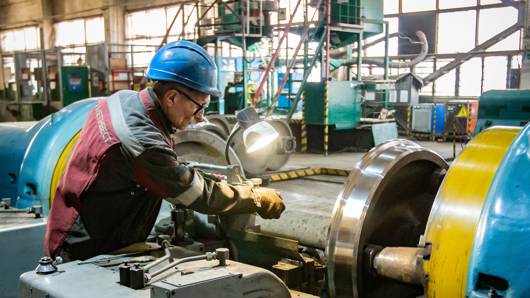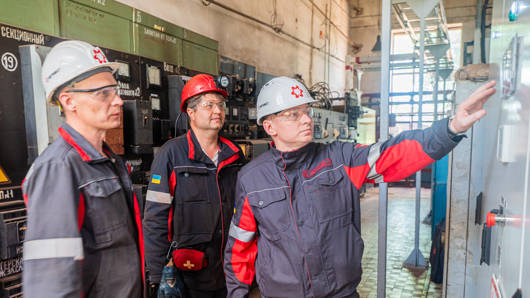During wartime, just as in peacetime, Metinvest's Central GOK continues to implement its environmental project, a key part of which is dust suppression measures. For seven years, the company has been practising sowing rye on dry plots of tailings facilities to stabilise soil. In 2024, the total area sown with grains reached 100 hectares.
Specialists from the Slurry Department of Central GOK are pleased with this year’s "harvest." The well-timed winter crop sowing and favorable weather conditions led to the highest seed germination rate. The rye sown in 2023 successfully survived the winter and sprouted in dense rows this spring. Three applications of fertilizer – during sowing, before winter, and in the spring – helped the plants establish themselves firmly on the sandy soil. So far, the rye is excellently performing its function of stabilising loose soils. Even during strong gusts of wind, the sown areas remain dust-free, as confirmed by Yevhenii Kucher, head of the Slurry Department.
The company’s ecologists began actively using green technologies for dust suppression seven years ago. Initially, tailings facilities were planted with reeds, and later, rye, which is resilient to various soil conditions, was added. It all started with experiments on small plots. Specialists had to ensure that the cereal plant could thrive on sandy soil with high mineral content. The calculations turned out to be successful. After that, rye began to be used in an industrial scale. The powerful root system and shoots form a natural protective barrier preventing dust spreading.
"The effectiveness of green technologies is beyond doubt, it has been proved by years of experience. As part various actions including treating the beaches with eco-friendly reagents, washing with industrial water, and loading with coarse rock material, we're seeing good results in combating dust at the tailings facilities. Additionally, we engage in greening activities within the company's sanitary protection zone, irrigate technological roads within the GOK's premises, and along public highways and roads near production areas," shared Natalia BILOZOROVA, head of Environmental Protective Department at Central GOK.










